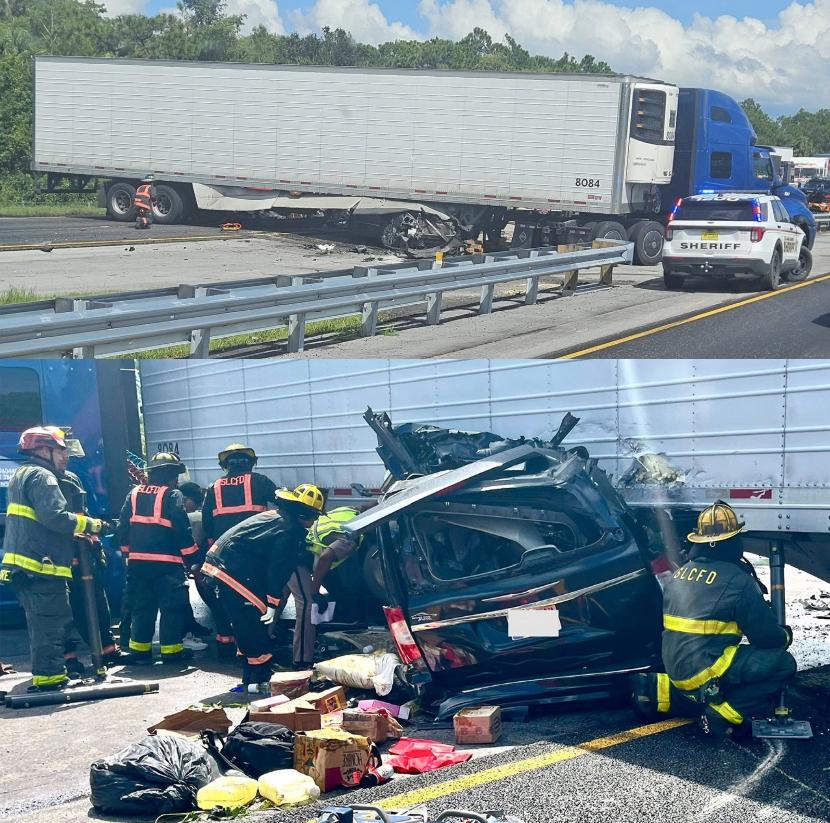Florida Highway Tragedy Underscores Need for Enforcement Overhaul in Training and Licensing
Commercial Vehicle Training Association
901 N Washington Street, Suite 509
Alexandria, VA 22314
703-642-9444

CVTA commends Secretary Duffy for initiating an investigation into the circumstances surrounding the horrific accident in Florida. To remedy this issue nationwide, CVTA and its national membership urge the Secretary to empower FMCSA to accelerate the removal of bad actors from the Training Provider Registry. At the same time, CVTA urges the Senate to rapidly confirm FMCSA Administrator-nominee Chief Derek Barrs, who will bring an extensive law enforcement background to the agency’s activities.
CVTA Chairman Danny Bradford
On August 12, 2025, a devastating crash in St. Lucie County, Florida, claimed the lives of three people. According to the Florida Department of Highway Safety and Motor Vehicles, the driver of an 18-wheeler attempted an illegal U-turn through an “official use only” access point, blocking all lanes of traffic and causing a fatal collision.

The driver, Harjinder Singh, was later found to be unlawfully present in the United States and had obtained a commercial driver’s license (CDL) in California. He now faces three counts of vehicular homicide. Following his arrest, U.S. Immigration and Customs Enforcement (ICE) lodged an immigration detainer to ensure he remains in custody after state prosecution.
On August 18, U.S. Secretary of Transportation Sean P. Duffy announced that the Federal Motor Carrier Safety Administration (FMCSA) has launched an investigation into both the driver and his carrier, White Hawk Carriers, Inc. FMCSA’s initial review uncovered several troubling failures:
- English language proficiency: During interviews, the driver failed an assessment, answering only 2 of 12 verbal questions correctly and identifying just 1 of 4 highway traffic signs.
- Licensing irregularities: Washington State improperly issued the driver a full-term CDL in 2023, despite federal law prohibiting issuance to asylum seekers or individuals without legal status.
- California CDL review: In 2024, California issued a limited-term, non-domiciled CDL to the driver. FMCSA is reviewing whether this was compliant with federal regulations.
- Enforcement failures in New Mexico: In July 2025, the driver was stopped for speeding, but the state police did not conduct the required proficiency assessment. Despite federal rules effective June 25, 2025, New Mexico has not yet adopted English proficiency as an out-of-service condition.
Secretary Duffy, “If states had followed the rules, this driver would never have been behind the wheel and three precious lives would still be with us. This was a preventable tragedy caused by reckless decisions and compounded by systemic failures. We will use every tool at our disposal to hold states and bad actors accountable.”
FMCSA investigators began their on-site compliance review on August 14, examining driver qualification files, crash video evidence, and motor carrier operations. Their findings will also support Florida’s ongoing criminal case.
This tragedy underscores the profound responsibility attached to a CDL. A CDL is not merely a credential—it is a license to operate a 40-ton vehicle, entrusted only to individuals who meet stringent training, legal, and safety requirements. When unauthorized or unqualified drivers slip through licensing systems, the consequences can be catastrophic. For the broader industry, the message is clear: safeguarding the integrity of CDL issuance is essential to public safety and to maintaining trust in the commercial driving profession. Oversight, uniform enforcement, and close coordination between states and federal regulators are not optional—they are life-saving requirements.
CVTA’s members understand these stakes firsthand and the need for rigorous training and licensing protocols. To that end, CVTA’s ELDT Task Force has worked to increase enforcement of the Training Provider Registry to remove bad actors and substandard ‘trainers’ from the industry. As well, CVTA has long argued that integrity in training and licensing standards must remain at the center of transportation policy. This case illustrates the consequences when those standards are neglected. CVTA will continue to advocate for stronger enforcement of entry-level driver training (ELDT) requirements, accountability in state licensing practices, and federal action to ensure all CDL holders are both qualified and authorized to share America’s roads.



